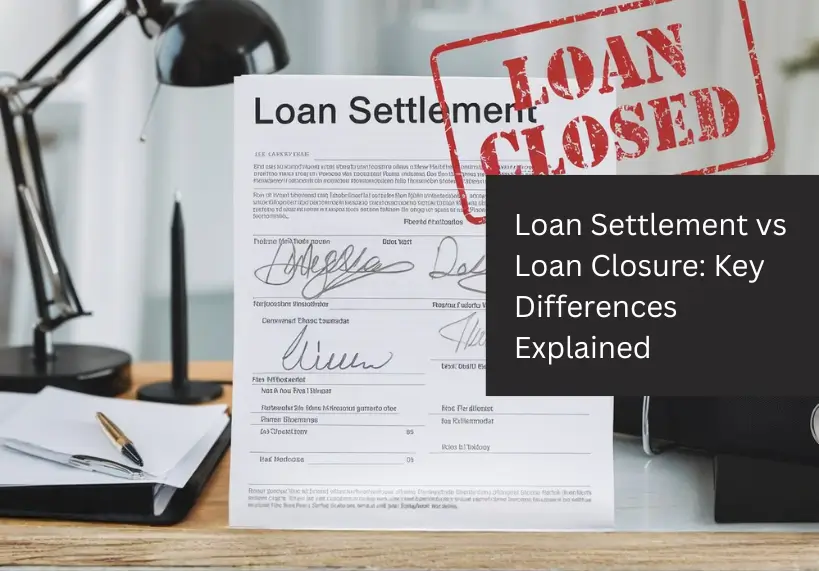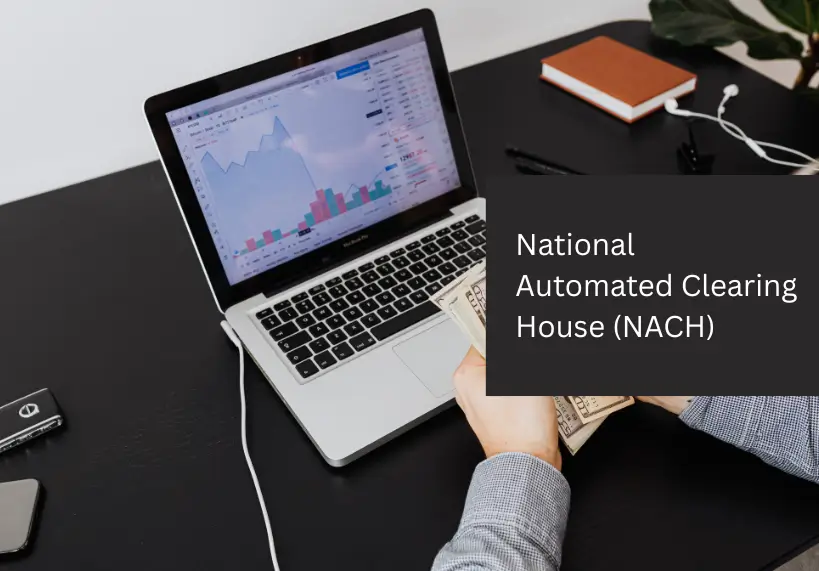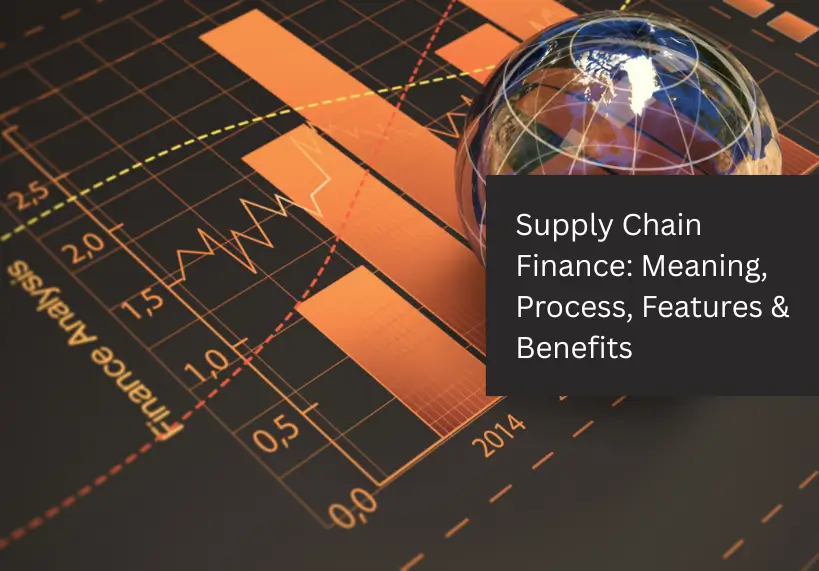
Borrowers often confuse loan settlement with loan closure, but the two are very different. Loan closure means you paid off the loan in full (principal, interest and any charges) as originally agreed. In contrast, loan settlement involves negotiating a reduced payment when you cannot repay the full amount, allowing you to clear the debt by paying less.
These outcomes have opposite effects on your credit history. Below we explain each term, compare them, and show why full closure is usually far better for salaried professionals.
What is Loan Closure?
A loan closure happens when you repay the entire outstanding balance of your loan. This can be done by paying all scheduled EMIs until the last payment, or by pre-paying (foreclosing) the loan early in one lump-sum. Once you finish repayment, the lender issues a No Objection Certificate (NOC) or loan closure certificate, confirming that you have no dues.
This clean closure is recorded in your credit report as “closed”, which generally boosts your credit score. In short, closing a loan on time shows you met your obligations and helps your future borrowing.
With closure, you can even pay off the loan early to save interest. Many lenders (including those on fintech platforms) allow foreclosure, meaning you pay the remaining balance ahead of schedule.
Some finance companies also provide foreclosure as just another form of closure: you either pay regular EMIs through the end of tenure or make a one-time full payment to close the loan. After foreclosure, you also get an NOC and your loan is marked “closed” on credit reports. This timely repayment is seen very positively by credit agencies.
What is Loan Settlement?
A loan settlement is very different. It is usually offered only if you’ve defaulted or are about to default on your EMIs. In a settlement, you and the lender agree that you will pay a reduced lump-sum amount that is less than the full balance, and the lender agrees to write off the remainder.
For example, if you owe ₹10 lakh and have trouble paying, the bank might let you settle by paying just ₹6 lakh now; once paid, the loan is closed but marked as “settled” on your records.
Settlement is a last-resort option for borrowers in financial distress. The lender negotiates the reduced payment (often demanding evidence of hardship), and you pay that amount as a one-time deal.
Afterward, the lender reports your account as settled. Importantly, this is not the same as closure – you did not repay the loan as agreed. Instead, the lender accepted less than what was due and closed the account under a different status.
Key Differences between Settlement and Closure
- Amount Paid: In loan closure you pay 100% of the original loan (full principal + interest). In loan settlement you pay only a negotiated portion (often a percentage of what was owed).
- Final Status: A closed loan is reported as “Closed” on your credit report, while a settled loan is marked “Settled”.
- Credit Score Impact: A timely closure boosts or maintains your credit score, because it shows you fulfilled the contract. A settlement harms your credit score. A settled loan record has an “adverse CIBIL impact” – scores can drop by roughly 75–100 points(and ClearTax notes it could be even more) because it signals you couldn’t repay as agreed.
- Future Borrowing: Closed loans make you appear creditworthy, making it easier to get new loans. Settled loans do the opposite – lenders see them as a red flag, so you’ll have difficulty borrowing again.
- Legal Consequences: Closing a loan on schedule means no legal issues – you simply finished paying. Settlement often comes only after you’ve defaulted. However, it can avoid legal action that the lender might otherwise take if you continued defaulting.
- Documentation: On closure, you get an official NOC (No Objection Certificate) or closure letter stating all dues are cleared. On settlement, you receive a settlement agreement, but your credit still shows a negative status.
In summary, loan closure means debt eliminated exactly as planned, while loan settlement means debt partially forgiven at a price. Closure is always better for your financial health.
Impact on Your Credit Score
The difference in credit impact is dramatic. Loan closure (full repayment) is treated positively. Paying off the loan in full gets it marked as “Closed” and boosts your credit score. You can then borrow more easily in future.
By contrast, settling a loan hurts your credit deeply. The term “settled” on your report is seen as negative repayment behavior. Your CIBIL score drops significantly (a 75–100 point fall or even 150+ points). Moreover, this record stays on file for about 7 years. During that time, new lenders will be wary: for seven years after a settlement it may be very hard to get another loan.
In short, settlement can stall your credit journey for a long time, whereas full closure helps you move forward.
Avoiding Settlement: Smart Borrowing Tips
Since settlement is so damaging, salaried borrowers should avoid it. Keep up with EMIs, or if trouble looms, act early. Try contacting your lender to restructure the loan (extend tenure or reduce interest) instead of defaulting. Exploring options like selling assets or finding new income to cover dues rather than settling.
Also, use technology wisely. For example, platforms like LoanTap can help salaried professionals find flexible personal loans before a crisis hits. LoanTap advertises “instant, flexible loans on consumer friendly terms to salaried professionals”, allowing you to meet short-term financial needs and cover EMI gaps if necessary. In an emergency, taking a quick personal loan from a transparent lender might help you repay an existing loan fully (closing it), rather than falling behind and having to settle later.
Above all, treat your loan statements as a priority. Regularly check your loan status on customer portals or apps. Make sure any prepayment or full payment is accurately recorded as “closed.” If ever offered a settlement, read the terms very carefully: the credit cost is usually too high. In most cases, carrying a loan cleanly to closure is the wiser path.
FAQs
Q: Is loan settlement the same as loan foreclosure or closure?
A: No. Foreclosure is just paying off the remaining loan early (and counts as closure). It means 100% repayment in one shot, with the loan marked “closed.” Settlement, however, means paying only a part of the outstanding after negotiation, with the account marked “settled” instead. They are opposite concepts.
Q: How does loan settlement affect my CIBIL score?
A: Settling a loan damages your credit score. The loan will show a “settled” status on your report. Credit bureaus view that as default-like behavior, so your score can drop dramatically (often 75+ points). This negative mark can stay for around 7 years, making new loans much harder to get.
Q: What happens after I fully repay (foreclose) a loan early?
A: If you pay off the full balance ahead of schedule, the loan is closed. You’ll receive a No Objection Certificate, and the lender will report the account as “closed” in your credit file. Foreclosure is treated just like regular closure – it helps your credit, not hurt it.
Q: Can I get another loan after a loan is settled?
A: It’s very difficult in the short term. After settlement, your credit report has a negative entry. Most lenders will be reluctant to approve you. You generally must wait for that mark to age off (several years) and rebuild your score before new loans become feasible.
Q: What is a No Objection Certificate (NOC) in loan closure?
A: An NOC is the document a lender gives you when you finish repaying a loan in full. It states that you have no dues and there are no obligations left on the loan. It’s proof that the loan was properly closed. After paying off a loan (whether via scheduled EMIs or prepayment), always obtain this NOC and ensure your credit report shows the loan as closed.
Q: Are there fees for closing a loan early versus settling it?
A: Yes. If you foreclose (close early), lenders may charge a foreclosure fee or prepayment penalty – check your loan terms. If you opt for settlement, the bank may also impose fees or penalties as part of the negotiation.
Q: Should I ever choose settlement?
A: Settlement is a last resort. It’s only for cases of real financial hardship when you can’t continue EMIs. Whenever possible, avoid it. Instead, try to restructure or refinance the loan, or get emergency help (for example, a short-term loan on a platform like LoanTap) so you can complete payments.








